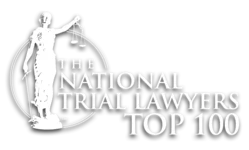/a> Facebook posts about your employer can be grounds for termination if not made for the purpose of improving conditions at work.
Your employer may not be your Facebook friend and you can be fired for making obscene threats on your private page.
A National Labor Relations Board (NLRB) panel in California ruled that a neighborhood center providing after-school activities to high school students did not violate the National Labor Relations Act (NLRA) when it fired two employees for their Facebook conversation regarding their employment.
Kenya Moore, a program leader, and Ian Callaghan, an activity leader, both worked for the Richmond District Neighborhood Beacon Teen Center for the 2012-2013 school year.
Cold shoulder
At the end of the year, both Moore and Callaghan helped to facilitate a staff meeting where employees were asked to list the pros and cons of working at the center. The employees created a list of 9 pros and 23 cons. After the list was made, administrative staff reportedly gave the employees the “cold shoulder” and refused to schedule any follow up meeting after several attempts were made by Callaghan.
Moore and Callahan were offered employment contracts for the 2013-2014 school year, but Moore was given a demotion to an activity leader due to her negatively rated summer work performance.
Moore and Callahan then messaged one another on Facebook about the renewal of their employment, frustrations with administrators and plans for the following year. Comments made during their exchange regarding their plans while working included:
- “I don’t want to ask permission, I just want it to be LIVE”
- “let them figure it out when they start loosn kids I aint helpn”
- “we’ll take advantage, play music loud...and teach the kids how to graffiti up the walls”
- “Let’s fuck it up”
- “WE CAN LEAVE NOW hahaha I AINT GOBE NEVER BE THERE.”
Threats of insubordinate acts
Although Moore and Callaghan’s posts were on Callaghan’s private Facebook page, a screen shot of their exchange was given to the employer by another employee, prompting the rescission of their contract offers. The NLRB confirmed the judge’s ruling that Moore and Callaghan’s social media conduct was “so egregious” that it was not protected by the NLRA.
The panel further explained that the “magnitude and detail of the insubordinate acts advocated” for in the post were so extreme that the employer was not “obliged to wait” for Moore and Callaghan to follow through on the acts, but the statements alone made them “unfit for further employment.”
What the NLRA protects
The National Labor Relations Act was enacted in 1935 to “protect the rights of employees and employers, to encourage collective bargaining, and to curtail” employer practices that may harm the “general welfare of workers, businesses, and the U.S. economy.”
According to the NLRB, employees are covered under the act for concerted activity, in which one or more employees “act together” in efforts to improve “their pay and working conditions.” An individual is protected prior to involving others if he is also acting on behalf of the benefit of other employees, not just for his own benefit or grievance.
When posting comments and material online, there are guidelines to abide by to keep your job. Always check your employer’s policies and procedures to determine if a social media policy is in place. The NLRA provides guidelines and a sample policy for employers indicating what they can legally enforce regarding social media. Below is a list of what you as an employee can post, and what you should avoid, in order to remain under the protection of the NLRA.
Protected concerted online activity allowed:
- Joining together with coworkers in cyberspace to improve your working lives.
- Addressing work-related issues by sharing information about pay, benefits and working conditions.
- Raising work-related complaints and issues so long as it is a part of a group action.
- Making comments to initiate, induce or prepare for group action.
- Bringing a group complaint about work-related issues to the attention of management.
- Sending posts that are truthful and make clear that they are your own opinion.
- Quickly correcting any mistake and indicating that a correction was made.
- Making it clear that your posts are your own opinion and you are not speaking on behalf of the employer or as a representative of your employer.
Prohibited online activity and activity not protected:
- Using statements, photos or videos that can be viewed as malicious, obscene, threatening or intimidating, harassment or bullying.
- Inappropriate or unlawful conduct such as threats of violence or discriminatory remarks.
- Anything that could create a hostile work environment on basis of race, sex, disability, religion or any protected status.
- Personal gripes about employer not made in seeking improvement for other employees.
- Advocating or threatening to engage in reckless, malicious behaviors such as sabotaging equipment, threatening violence, egregious insubordinate acts.
- Revealing trade secrets.
- Spreading lies or false information.
The NLRB panel dismissed Moore and Callaghan’s complaint against the Richmond District Neighborhood Beacon Teen Center because the comments made may have “jeopardized” the “grants and other funding” the Neighborhood Center receives from the “government and private donors.” As such, the panel found that the Neighborhood Center did not violate the NLRA protection of employee rights.
The case is Richmond District Neighborhood Center and Ian Callaghan, Case 20–CA–091748.
